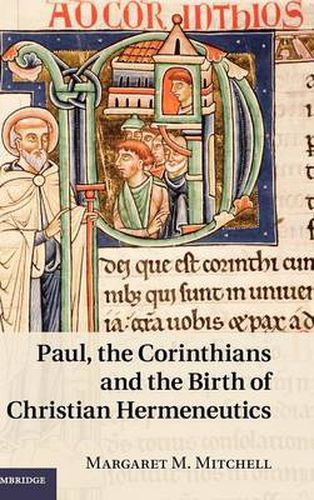Readings Newsletter
Become a Readings Member to make your shopping experience even easier.
Sign in or sign up for free!
You’re not far away from qualifying for FREE standard shipping within Australia
You’ve qualified for FREE standard shipping within Australia
The cart is loading…






In a series of exchanges with the Corinthians in the mid-50s AD, Paul continually sought to define the meaning of his message, his body and his letters, at times insisting upon a literal understanding, at others urging the reader to move beyond the words to a deeper sense within. Proposing a fresh approach to early Christian exegesis, Margaret M. Mitchell shows how in the Corinthian letters Paul was fashioning the very principles that later authors would use to interpret all scripture. Originally delivered as The Speaker’s Lectures in Biblical Studies at Oxford University, this volume recreates the dynamism of the Pauline letters in their immediate historical context and beyond it in their later use by patristic exegetes. An engagingly written, insightful demonstration of the hermeneutical impact of Paul’s Corinthian correspondence on early Christian exegetes, it also illustrates a new way to think about the history of reception of biblical texts.
$9.00 standard shipping within Australia
FREE standard shipping within Australia for orders over $100.00
Express & International shipping calculated at checkout
In a series of exchanges with the Corinthians in the mid-50s AD, Paul continually sought to define the meaning of his message, his body and his letters, at times insisting upon a literal understanding, at others urging the reader to move beyond the words to a deeper sense within. Proposing a fresh approach to early Christian exegesis, Margaret M. Mitchell shows how in the Corinthian letters Paul was fashioning the very principles that later authors would use to interpret all scripture. Originally delivered as The Speaker’s Lectures in Biblical Studies at Oxford University, this volume recreates the dynamism of the Pauline letters in their immediate historical context and beyond it in their later use by patristic exegetes. An engagingly written, insightful demonstration of the hermeneutical impact of Paul’s Corinthian correspondence on early Christian exegetes, it also illustrates a new way to think about the history of reception of biblical texts.